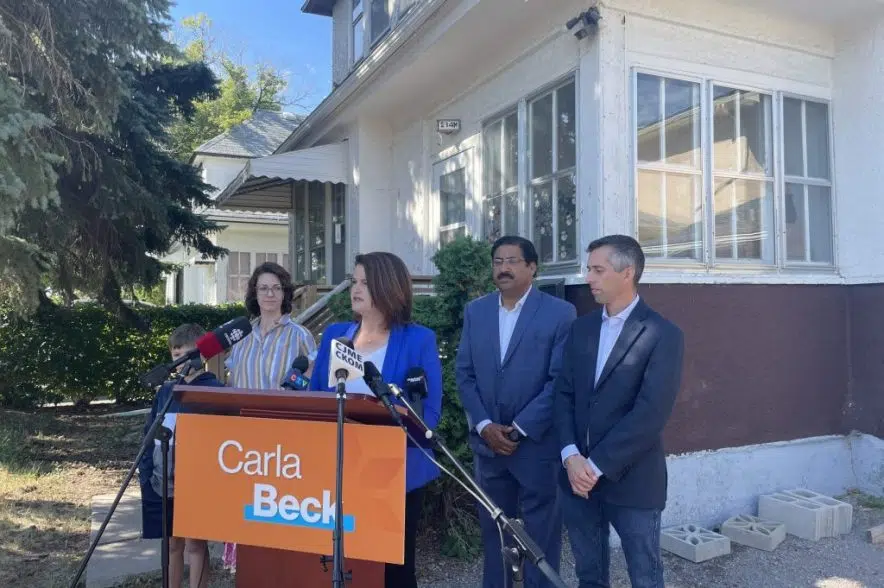Adding up the bills at the end of the month has Alayne Dubord feeling the pressure.
“It feels really stressful and like a big burden and we want to give (our kids) the best. It just doesn’t feel like we have the tools at our disposal to do that,” Dubord said Monday.
The mom of two says it’s difficult to make ends meet while dealing with high utility costs and grocery inflation.
Dubord and her husband operated a small business, and her husband also works a warehouse job on the side. She said the family is paying for food by the gram, and utility bills have doubled, which have cut into her budget to fix structural renovations for her home.
The NDP has released numbers showing that Saskatchewan families are paying $1,608 more per year in utilities and provincial sales tax (PST) than in 2016.
“We’ve been working the best that we can and it just doesn’t seem like it’s getting any easier, and we are doing everything we can to do what’s within our power,” said Dubord.
NDP Leader Carla Beck said PST, SaskPower and SaskTel increases are the cause.
Beck spoke to numerous people who said summer vacation was not an option because of high costs.
“Vacations are a distant memory. People who would normally have some time off in the summer are taking on a second job just to be able to pay the bills,” said Beck.
In the 2022-23 fiscal year, $338,903,470 was brought in after the provincial government made the choice to expand the PST.
The Saskatchewan Party has rebutted the NDP’s argument, saying the Official Opposition used “selective numbers” to suggest the provincial government has increased the cost of living.
“Nothing could be further from the truth,” the Saskatchewan Party said in a news release. “When all tax reductions and other tax saving measures are taken into account, the average Saskatchewan family pays significantly less to the provincial government than when the NDP were in office.”
The government gave examples of how it has helped people, like the $500 Affordability Tax Credit payment that went out in November, and the fact the government didn’t introduce any new tax increases in the 2023-24 budget.
The release also noted that Saskatchewan has the second-lowest utility bundle in Canada, and one of the lowest personal income taxes in the country.
Beck stood behind the numbers the NDP put forward.
“Our numbers are correct,” she said. “What’s also correct is that this is the No. 1 concern for people in this province and if (Premier Scott Moe) doesn’t understand that, then he is not paying attention. But I’m not surprised.”











